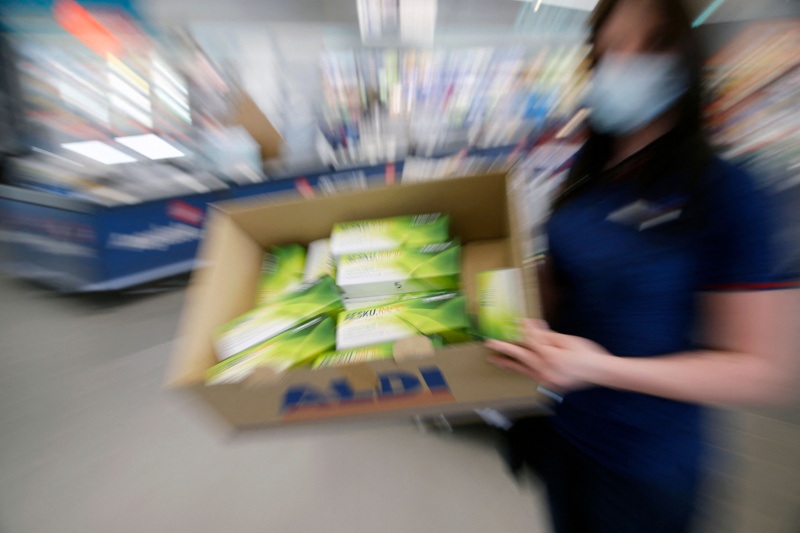FRANKFURT: Germans flocked to supermarket chain Aldi yesterday to snap up the first rapid coronavirus tests to go on sale nationwide, with stocks selling out within hours. Rival discounter Lidl meanwhile saw its website crash after it started offering at-home testing kits for sale online. "We want to assure anyone who left empty-handed that new stocks are coming in the next days," an Aldi spokesman told the Bild newspaper.
The German government is relying heavily on rapid tests to steer country through the next phase of the pandemic as citizens tire of coronavirus shutdowns but the pace of vaccinations remains sluggish. From tomorrow, all Germans will be entitled to one free rapid test a week, carried out by a professional at pharmacies or designated testing centers.
Several manufacturers have also received regulatory approval for DIY tests meant for home use. The goal is to give people more freedom after months of closures and limits on socializing, but experts have stressed that the quick tests are less reliable than standard PCR testing and that the usual hygiene precautions should be maintained even with a negative result.
Aldi is limiting the purchases to one packet per person, containing five tests for €24.99 ($30). The test is done with a nasal swab and delivers a result within 15 minutes. Lidl's offer is similar and costs €21.99. Tests will also go on sale at major drug store chains and other outlets in the coming days.
Health Minister Jens Spahn, already under fire over Germany's slow vaccination pace, has promised there will be "more than enough" rapid tests for everyone, including 50 million free tests a month. But critics have questioned whether local authorities are ready to cope with the expected huge demand.
Manuela Schwesig, the state premier of Mecklenburg-Western Pomerania, said supermarkets were better prepared than the federal government. "I fail to understand why rapid tests are now being sold by discounters but have yet to be ordered for daycares and schools," she said. Germany has struggled to bring down COVID-19 rates in recent weeks, with numbers plateauing and even rising on some days. The country added 9,557 new coronavirus cases yesterday and another 300 deaths, according to the Robert Koch Institute. - AFP
.jpg)

